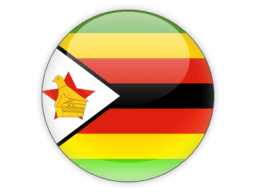
Cities of Zimbabwe
Discover 46 cities across 10 regions
Bulawayo(1)
Mashonaland Central(6)
Mashonaland East Province(6)
Mashonaland West(10)
Masvingo Province(4)
Matabeleland North(4)
Matabeleland South Province(3)
Zimbabwe is a landlocked country located in southern Africa, bordered by Zambia to the north, Mozambique to the east, South Africa to the south, and Botswana to the west. It has a population of over 14 million people and its capital city is Harare.
Zimbabwe has a diverse economy that is largely based on agriculture, mining, and tourism. It is known for its rich mineral resources, including gold, platinum, diamonds, and chrome, which contribute significantly to the country's economy. The country also has a significant agricultural sector, with crops such as tobacco, maize, cotton, and sugar cane being major exports.
The country's history is marked by a long struggle for independence from colonial rule. Zimbabwe gained its independence from the United Kingdom in 1980 and was initially led by Robert Mugabe, who remained in power for more than three decades until he was ousted in a military coup in 2017. Since then, the country has been led by Emmerson Mnangagwa.
Zimbabwe is home to a number of natural and cultural attractions, including the Victoria Falls, one of the largest waterfalls in the world; Hwange National Park, which is known for its diverse wildlife; and the ruins of Great Zimbabwe, an ancient city that was once the capital of the Kingdom of Zimbabwe.
Despite its natural and cultural wealth, Zimbabwe has faced a number of challenges in recent years, including a struggling economy, political instability, and food and water shortages. However, the country has made significant progress in some areas, such as increasing access to education and healthcare, and there are ongoing efforts to improve the country's overall economic and social well-being.
Telephone Code
263
Local Emergency Phone
Ambulance: 994, 999; Fire: 993, 999; Police: 995, 999
Vaccinations
An International Certificate of Vaccination for yellow fever is required for travelers arriving from countries with a risk of yellow fever transmission and for travelers having transited through the airport of a country with risk of yellow fever transmission. See WHO recommendations.
Climate
Tropical; moderated by altitude; rainy season (November to March)
Currency (Code)
Zimbabwean dollars (ZWD)
Electricity/Voltage/Plug Type(s)
240 V / 50 Hz / plug types(s): D, G
Major Languages
Shona, Ndebele , English, 13 minority languages
Major Religions
Protestant 74.8% (includes Apostolic, Pentecostal, other), Roman Catholic 7.3%, other Christian 5.3%, traditional 1.5%, Muslim 0.5%, other 0.1%, none 10.5%
Potable Water
Opt for bottled water
International Driving Permit
Suggested
Road Driving Side
Left
Tourist Destinations
Harare; Chinhoyi Caves; Bulawayo; Great Zimbabwe Ruins; Hwange National Park; Mana Pools National Park; Lake Kariba; Victoria Falls, Matobo National Park
Major Sports
Soccer, cricket, tennis, handball
Cultural Practices
Speaking to someone with your hands in your pockets is considered impolite.
Tipping Guidelines
At restaurants, the tipping standard is usually 10% of the bill. Tip safari guides at the end of a tour $10-15 (USD) per person per day.
Souvenirs
Copper-, wood-, and soapstone-carved items; local fabrics; basketwork; pottery; leather goods
Traditional Cuisine
Sadza — cornmeal mixed with water until it becomes a stiff dumpling-like porridge which is then boiled; typically served hot as a side dish for meat or vegetable stews
Geography
Area
total: 390,757 sq km
land: 386,847 sq km
water: 3,910 sq km
Climate
tropical; moderated by altitude; rainy season (November to March)
Natural resources
coal, chromium ore, asbestos, gold, nickel, copper, iron ore, vanadium, lithium, tin, platinum group metals
People and Society
Population
15,418,674 (2023 est.)
Ethnic groups
African 99.4% (predominantly Shona; Ndebele is the second largest ethnic group), other 0.4%, unspecified 0.2% (2012 est.)
Languages
Shona (official; most widely spoken), Ndebele (official, second most widely spoken), English (official; traditionally used for official business), 13 minority languages (official; includes Chewa, Chibarwe, Kalanga, Koisan, Nambya, Ndau, Shangani, sign language, Sotho, Tonga, Tswana, Venda, and Xhosa)
Religions
Protestant 74.8% (includes Apostolic 37.5%, Pentecostal 21.8%, other 15.5%), Roman Catholic 7.3%, other Christian 5.3%, traditional 1.5%, Muslim 0.5%, other 0.1%, none 10.5% (2015 est.)
Population growth rate
1.95% (2023 est.)
Government
Government type
presidential republic
Capital
name: Harare
Economy
Economic overview
low income Sub-Saharan economy; political instability, protest crackdowns, and COVID-19 have damaged economic potential; reliant on natural resource extraction and agriculture; endemic corruption; ongoing hyperinflation
Real GDP (purchasing power parity)
$33.829 billion (2021 est.)
Real GDP per capita
$2,100 (2021 est.)
Agricultural products
sugar cane, maize, milk, tobacco, cassava, vegetables, bananas, beef, cotton, oranges
Industries
mining (coal, gold, platinum, copper, nickel, tin, diamonds, clay, numerous metallic and nonmetallic ores), steel; wood products, cement, chemicals, fertilizer, clothing and footwear, foodstuffs, beverages
Exports
$5.263 billion (2020 est.)
Exports - partners
United Arab Emirates 40%, South Africa 23%, Mozambique 9% (2019)
Exports - commodities
gold, tobacco, iron alloys, nickel, diamonds, jewelry (2019)
Imports
$5.489 billion (2020 est.)
Imports - partners
South Africa 41%, Singapore 23%, China 8% (2019)
Imports - commodities
refined petroleum, delivery trucks, packaged medicines, fertilizers, tractors (2019)
International Airports in Zimbabwe
Discover 3 major airports serving Zimbabwe
Mark Zimbabwe as Visited
Add Zimbabwe to your personal travel map and track your journey around the world. Share your adventures and see your progress grow!